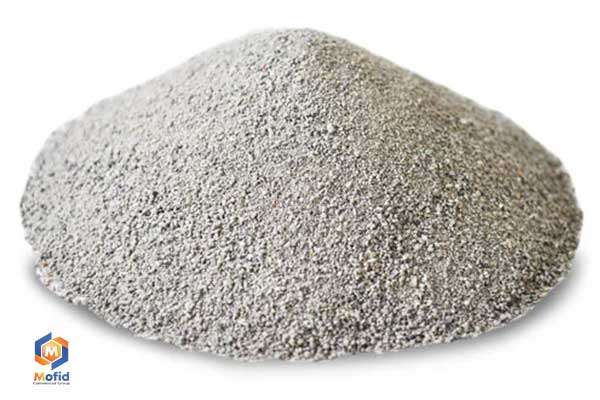Applications of Bentonite Clay in Agriculture
Bentonite clay in agriculture acts as a super water-absorbing material. Additionally, this material contains some beneficial metal ions for plants, such as sodium, calcium, and others. The roles of absorbents in agriculture include:
- Preventing water loss and constantly supplying moisture to plants.
- Retaining nutrients dissolved in water near the roots of plants.
- Preventing soil erosion and the loss of nutrients.
Mineral Bentonite in Agriculture
Mineral Bentonite is a versatile material with wide applications in agriculture due to its natural absorbent and ion-exchange properties. This type of bentonite enhances soil structure, retains water efficiently, and provides essential minerals like calcium and magnesium. Its application in agricultural soils improves nutrient availability, reduces water wastage, and supports healthier plant growth.
For example, Sodium Mineral Bentonite is ideal for arid regions, as its swelling capacity allows it to absorb several times its weight in water. On the other hand, Calcium Mineral Bentonite improves ion exchange in the soil, facilitating better nutrient uptake and contributing to plant health.
By using Mineral Bentonite, farmers can achieve sustainable agricultural practices that reduce dependency on chemical fertilizers while improving crop yields.
Types of Bentonite Beneficial in Agriculture
Sodium Bentonite
Sodium bentonite has high swelling properties and can absorb several times its weight in water. This feature makes it suitable for dry and arid soils.
Calcium Bentonite
Calcium bentonite, with its ion exchange property, helps plants absorb nutrients more effectively and provides the calcium needed by plants.
Which Type of Bentonite is Useful in Agriculture?
The type of bentonite used in agriculture is significant. For example:
- Sodium bentonite has very high swelling properties, meaning it can absorb several times its weight in water.
- Calcium bentonite, on the other hand, absorbs ions and enhances the soil’s ion exchange capacity. It also supplies calcium as one of the essential ions required by plants.
The size and granulation of bentonite are also important for proper distribution in the soil.
Clarifying Bentonite in Agriculture
Although Clarifying Bentonite is primarily known for its applications in industries like food and beverages, it can also play a beneficial role in agriculture. Its ability to remove impurities and improve soil quality makes it a potential additive in specific agricultural practices. By enhancing the soil structure and balancing nutrient levels, Clarifying Bentonite can support plant growth in controlled environments like greenhouses or experimental setups.
How Much Bentonite Should Be Used in Agriculture?
To determine the exact amount of bentonite required in agriculture as a super water absorbent and growth stimulant in soilless cultivation substrates, an experiment was conducted on the performance of green beans. This experiment primarily evaluated cultivation in greenhouses.
The research, carried out in the research greenhouses of Isfahan University of Technology, aimed to determine the optimal amount of bentonite consumption. In the first series of experiments, 10% and 20% volume of bentonite were mixed with 90% wood shavings, rice husks, and sand. Various growth factors of bean plants were carefully examined.
Results showed that using 10% bentonite had a greater and better impact compared to 20% bentonite. Moreover, rice husks were more effective than sand and wood shavings.
To ensure the evaluated amounts, in the second phase of the experiment, 5% and 10% volume of bentonite were tested. Again, the best growth factors were observed with 10% bentonite. According to the research, it can be concluded that using 10% bentonite with light substrates such as rice husks can significantly improve plant growth by reducing water and dissolved nutrient loss.


